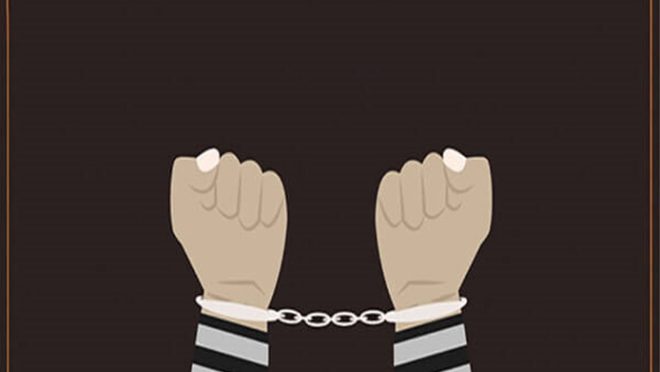Underage arrest and remand: What the Children Act 2013 says
Underage arrest and remand: What the Children Act 2013 says

If an underage child commits any crime, would they be prosecuted under the same law as adults? The answer is a resounding no.
For cases like this, there is the Children Act 2013 (which is a modified version of the 1974 Children Act) which is in place to safeguard children’s rights, setting strict guidelines on how minors should be treated by law enforcement.
According to this Act, any individual under 18 years old must be presented at a juvenile court after detention and cannot be handcuffed, tied with ropes, or subjected to remand. Such actions are unlawful and constitute a gross violation of juvenile law.
Despite these provisions, if police arrest a child under sections 54 or 55 of the Code of Criminal Procedure (CrPC) and present them before a juvenile court which must swiftly and effectively ensure compliance with the Children Act 2013.
Section 54 of CrPC allows for arrest based on suspicion without specific charges, while section 55 permits arrest on the grounds of vagrancy or habitual misconduct. However, these provisions are overridden by the protections of the Children Act.
Also, anyone below the age of nine years cannot be arrested or detained according to the section 44(1) of the Children Act. If an arrest is made, section 44(2) mandates that the police must immediately inform the relevant authorities to assess the situation.
Barrister Tapas Kanti Baul, prosecutor of the International Crimes Tribunal, elaborated on the law, emphasising that anyone under 18 is legally considered a child. “The law is clear: if a child is arrested, they cannot be placed with adult inmates. They must be kept in a separate room, not a cell and the room should not invoke fear. And the case will be dealt with in a juvenile court.”
He also highlighted that children should be referred to as “children in conflict with law” rather than “accused” or “convict.”
During the hearing at a juvenile court only the guardians, probationary office can be present with the child with the mandatory presence of a female police officer. No one other than these people are allowed to attend the hearing.
Following the initial hearing, if there requires any questioning or interrogation it must be done in presence of the guardian. And if they must be housed somewhere during legal proceedings, they should be sent to a Juvenile Development Centre (JDC) not jail.
Key points of the Children Act 2013:
1. Harmonisation with CRC: The Children Act 2013 aligns with the Convention on the Rights of the Child (CRC), replacing the Child Act of 1974. “The Act is in complete harmony with international law,” Barrister Tapas remarked, noting that it ensures fair treatment for children under both national and international laws.
2. Definition of a child: The Act standardises the definition of a child, increasing the age from 16 to 18 years. This change ensures that all individuals under 18 receive appropriate legal protection.
3. Single charge sheet against children: The Act specifies about submitting charge sheet against children. According to the Act, a single charge sheet consisting of adults and children cannot be submitted.
4. Protection of child victims and witnesses: The Act introduces provisions for the protection of child victims and witnesses, including compensation and legal safeguards.
5. Appointment of probation officers: The government is required to appoint probation officers, including female police members, at district, upazila, and metropolitan levels.
6. Child help desks in police stations: Child help desks, managed by officers ranked sub-inspector or above, are to be established in police stations nationwide.
7. Separate room for children: Children must be kept in separate, child-friendly rooms, not with adult inmates. For instance, a child protection room in Mohammadpur features beautiful pictures on the walls, creating a conducive environment for children.
8. Child-friendly arrest procedures: The Act prohibits the arrest of children below nine years old and forbids the use of handcuffs or ropes on children above this age.
9. Interrogation protocol: Interrogation of children must occur in the presence of their parents, with no provision for remand.
10. Juvenile courts: The Act mandates the establishment of at least one juvenile court in each district or metropolitan area to handle cases involving children.
11. Provision of sentences: The Act imposes penalties of up to five years imprisonment and a fine of Tk1 lakh for cruelty to children, along with guidelines for raising children in a nurturing environment.
12. Media responsibility: The media is prohibited from publishing articles, photographs, or information that could harm the reputation of a child under trial.
13. Well-being of children: The Act promotes family-based care and protection, focusing on the best interests of the child and meaningful child participation.
14. Provision for punishment: As per section 33(1) of the Children Act 2013, no child shall be sentenced to death, imprisonment for life or imprisonment. Where a child is found guilty of an offence punishable with death or imprisonment for life, the Children’s Court may order the child to be detained in a Child Development Centre for a period of not less than 3 and not more than 10 years. However, according to section 34 of the Children Act 2013, if a child is found guilty of an offence not punishable with death or imprisonment for life, s/he may be ordered to be detained in a Child Development Centre for up to 3 years.


